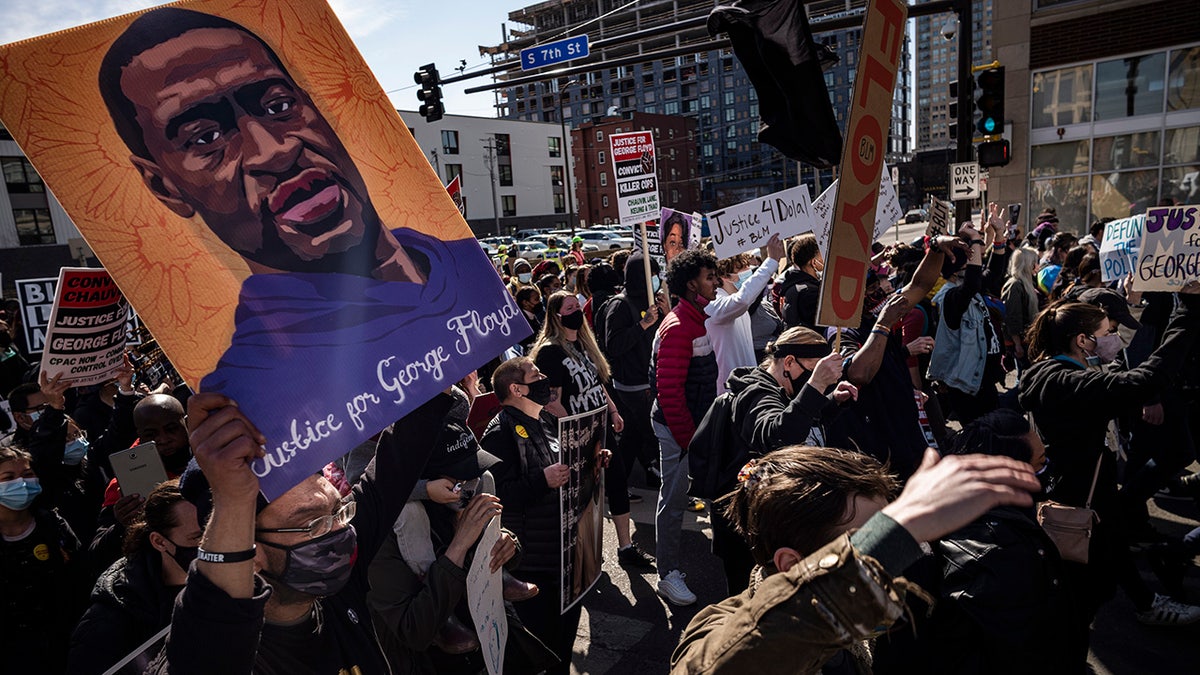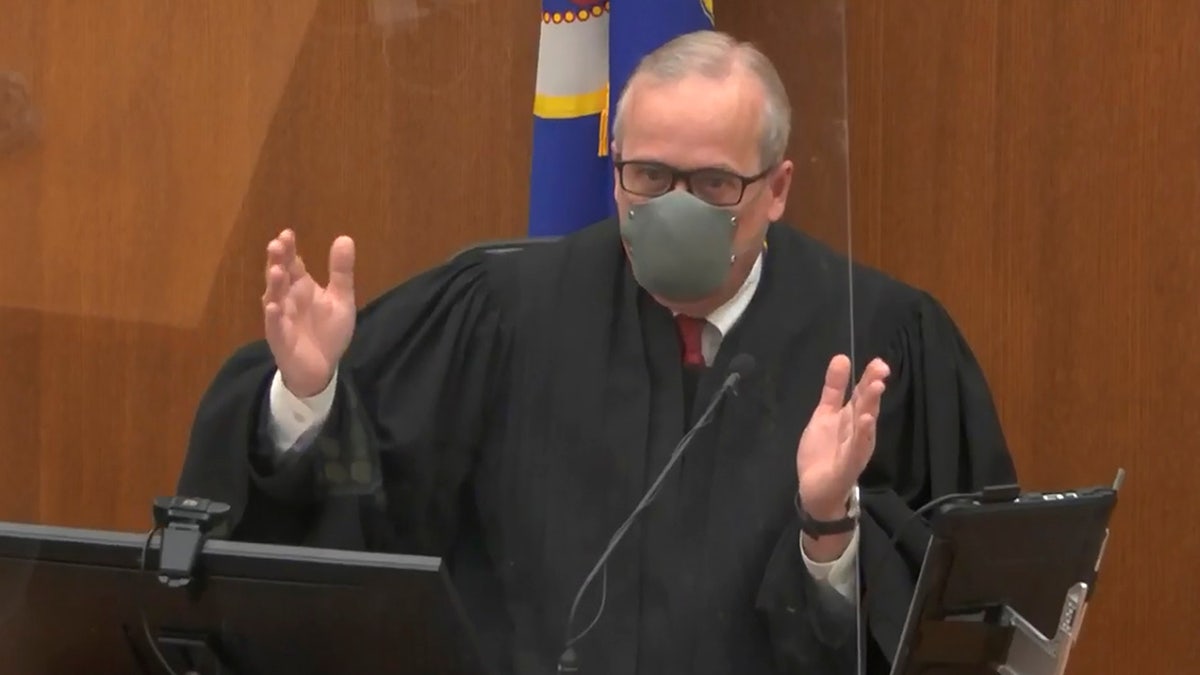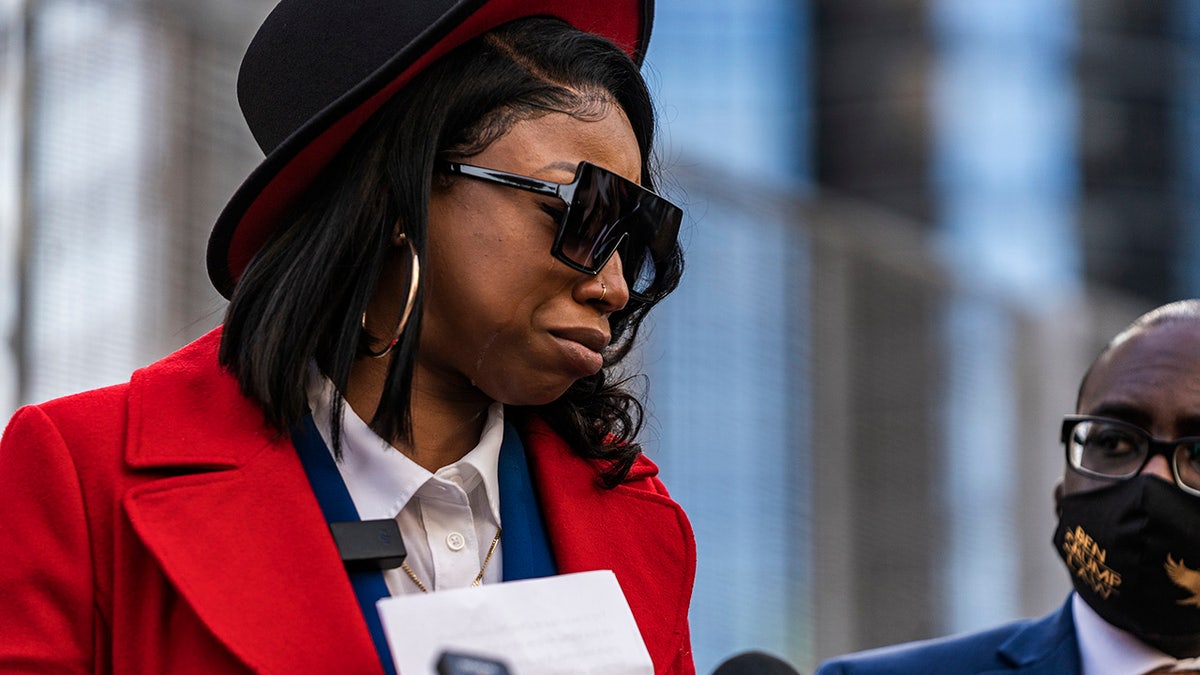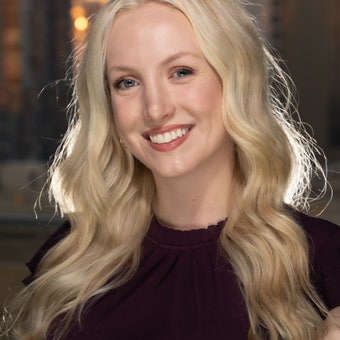Minneapolis business owner: It seemed like 'nobody was in charge' of protecting the city during the George Floyd riots
Minneapolis business owner Dermot Cowley discusses the damage caused to his business in last year’s violent protests.
Jury selection in the trial of ex-Minneapolis cop Derek Chauvin is expected to begin Tuesday, a day later than scheduled -- though a looming appellate ruling could push the case back weeks or even months as the state tries to reinstate a third-degree murder count.
Chauvin is charged with second-degree murder and manslaughter in the death of George Floyd. Hennepin County Judge Peter Cahill sent a group of potential jurors home Monday, and state prosecutors later filed a motion with the Minnesota Court of Appeals asking to stop the case until the Minnesota Supreme Court makes a decision on whether or not to reinstate a charge of third-degree murder.
The second-degree murder charge requires prosecutors to prove that Chauvin’s conduct was a "substantial causal factor" in Floyd’s death, and that Chauvin was committing felony assault at the time. The third-degree murder charge would require them to prove that Chauvin caused Floyd’s death through a dangerous act without regard for human life.
The motion argues that Cahill lacks jurisdiction over the case until the state Supreme Court acts. But the Court of Appeals has yet to respond, and Cahill was adamant that jury selection start Tuesday.
"Unless the Court of Appeals tells me otherwise, we’re going to keep moving," he said Monday.
Court will resume at 8 a.m. CT to discuss outstanding legal matters, and jury selection is scheduled to begin at 9 a.m. CT.
The Court of Appeals last week ordered Cahill to consider reinstating a third-degree murder charge that he had dismissed last fall. Reinstating the third-degree murder charge could improve the odds of getting a conviction, according to some legal experts.
Chauvin’s attorney, Eric Nelson, told the judge Monday he would file a petition no later than Tuesday with the state Supreme Court to review the issue. Nelson technically has at least 30 days to file the petition, but he told Cahill he does not intend to delay the matter. It could take another 30 days for the Supreme Court to review the matter and respond, the Minneapolis Star Tribune reported.

Protesters march on the first day of the Derek Chauvin trial Monday, March 8, 2021 in Minneapolis, Minn. Chauvin is the former Minneapolis police officer charged in the death of George Floyd. (Richard Tsong-Taatarii/Star Tribune via AP)
"We're prepared to try this case," Nelson said. "It is not our intent to cause delay. However, I feel I have an ethical obligation to my client."
Prosecutors and defense attorneys on Monday agreed to dismiss 16 of the first 50 jurors they reviewed "for cause," based on their answers to a lengthy questionnaire. The dismissals weren’t debated in court, but such dismissals can be for a host of reasons, such as views that indicate a juror can’t be impartial.
"The State is fully ready to go to trial, but the trial must be conducted in accordance with the rules and the law," state Attorney General Keith Ellison said in a statement Monday. "Now that Mr. Chauvin has stated his intention to appeal Friday’s Court of Appeals ruling to the Minnesota Supreme Court, as is his right, the district court does not have jurisdiction to conduct jury selection or hear and rule on other substantive matters in the trial. We have filed motion with the Court of Appeals to ensure that justice is pursued properly."

In this image from video, Hennepin County Judge Peter Cahill presides over pretrial motions before jury selection, Monday, March 8, 2021, in the trial of former Minneapolis police officer Derek Chauvin, in the May 25, 2020, death of George Floyd at the Hennepin County Courthouse in Minneapolis, Minn. (Court TV via AP, Pool)
Hundreds of people gathered outside the courthouse as proceedings began Monday, many carrying signs that read "Justice for George Floyd" and "Convict Killer Cops."
One speaker, D.J. Hooker, took a microphone and decried the "cage" of concrete barriers topped by chain-link fencing, barbed wire and razor wire up around the courthouse, part of at least $1 million that has been spent to fortify the downtown area during the trial.
Jury selection could take at least three weeks and will end when 14 jurors are picked -- 12 who will deliberate and two alternates. The potential jurors -- who must be at least 18, U.S. citizens and residents of Hennepin County -- were sent questionnaires to determine how much they have heard about the case and whether they’ve formed any opinions.

Bridgett Floyd speaks about how losing her brother has impacted her on the first day of the Derek Chauvin trial which began with jury selection Monday, March 8, 2021 in Minneapolis, Minn. Chauvin is the former Minneapolis police officer charged in the death of George Floyd. (Richard Tsong-Taatarii/Star Tribune via AP)
Besides biographical and demographic information, jurors were asked about prior contacts with police, whether they have protested against police brutality and whether they believe the justice system is fair.
Some of the questions get specific, such as how often a potential juror has watched the bystander video of Floyd’s arrest, or whether they carried a sign at a protest and what that sign said.
CLICK HERE TO GET THE FOX NEWS APP
Jurors will be questioned individually. The judge, defense attorney and prosecutors can all ask questions. In addition to both sides being able to argue for an unlimited number of "for cause" dismissals, the defense can object to up to 15 potential jurors without giving a reason; prosecutors can block up to nine without providing a reason. Either side can object to these peremptory challenges if they believe the sole reason for disqualifying a juror is race or gender.
The Associated Press contributed to this report.



